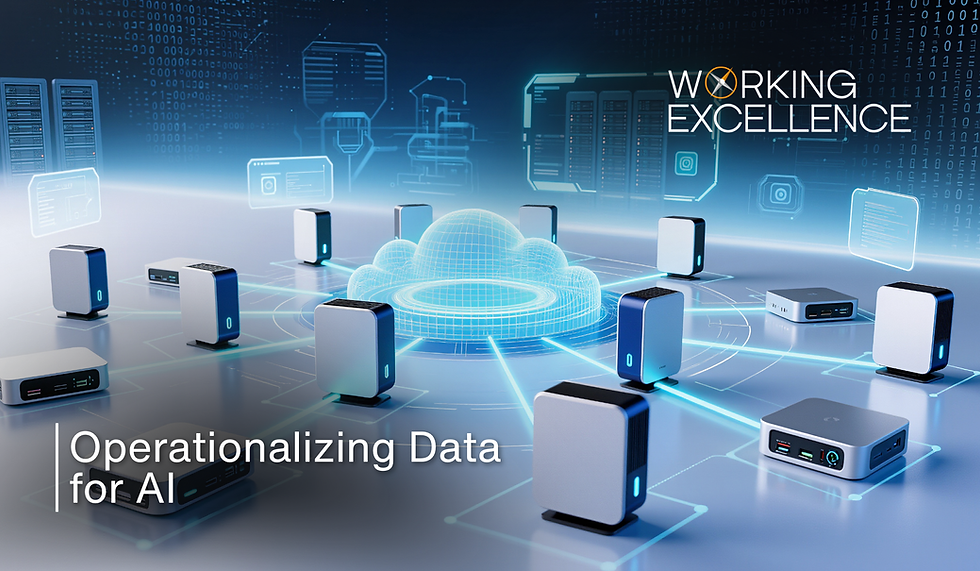Generative AI's Impact on Business and Marketing
- Jerry Garcia

- Nov 20, 2024
- 2 min read
The rise of generative AI is reshaping the landscape of business and marketing, offering innovative solutions that enhance efficiency and customer engagement. Companies across various sectors are increasingly adopting AI technologies to streamline operations, personalize customer experiences, and drive growth. This article explores the transformative effects of generative AI on business functions and marketing strategies.
Key Takeaways
Generative AI is becoming a cornerstone for digital transformation in various industries.
Companies are investing significantly in AI to enhance customer experiences and operational efficiency.
The integration of AI in marketing strategies is leading to more personalized and effective advertising.
The Role of Generative AI in Banking
Recent studies indicate that banks are allocating a substantial portion of their budgets to AI technologies. According to a Global Banking Benchmark Study, nearly 32% of banks' budgets for customer experience transformation are now directed towards AI and machine learning. This shift is driven by the need to meet rising customer expectations and improve operational efficiencies.
Key areas of focus for banks include:
Transactional Use Cases: 61% of banks utilize generative AI for tasks such as credit analysis and risk assessment.
Employee Productivity: 55% of banks employ AI to support staff, enhancing productivity through virtual assistants.
Marketing and Customer Service: Nearly half of the surveyed banks are integrating AI into their marketing and customer service operations.
Innovations in Advertising
In the advertising sector, companies like Cognitiv and Index Exchange are leveraging generative AI for programmatic ad curation. Their collaboration allows for real-time analysis of millions of websites, enabling advertisers to target audiences more effectively without relying on traditional cookie-based methods. This innovative approach enhances the relevance of ads and improves conversion rates.
The benefits of AI in advertising include:
Contextual Targeting: AI analyzes context and audience simultaneously, optimizing ad placements.
Speed and Efficiency: AI can process data and provide insights in milliseconds, significantly faster than traditional methods.
Customization: Advertisers can create tailored audience segments based on specific media briefs, improving campaign effectiveness.
Transforming Business Functions with AI
Accenture, Microsoft, and Avanade are at the forefront of helping enterprises reinvent their business functions through generative AI. Their new Copilot business transformation practice aims to accelerate AI adoption across various industries, providing clients with the tools and expertise needed to leverage AI effectively.
Key initiatives include:
Custom AI Solutions: Development of tailored AI applications to meet specific business needs.
Training and Support: Providing extensive training for employees to maximize the benefits of AI technologies.
Industry-Specific Applications: Creating AI solutions tailored to sectors such as finance, healthcare, and manufacturing.
Conclusion
The integration of generative AI into business and marketing strategies is not just a trend; it is a fundamental shift that is redefining how companies operate and engage with customers. As organizations continue to invest in AI technologies, the potential for enhanced efficiency, personalized experiences, and innovative solutions will only grow, positioning them for success in an increasingly competitive landscape.
Sources
Banks bet on AI to deliver digital efficiencies | CIO, CIO.
Index Exchange, Cognitiv integrate to use AI for ad curation, Digiday.
Accenture, Microsoft and Avanade help enterprises reinvent business functions and industries with generative AI and Copilot - Stories, Microsoft.



